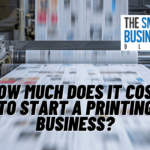The main goal of every business, regardless of what industry they might be in, is to make a profit. As a business owner, it’s important that you keep your costs to a minimum, without compromising too much on quality.
Striking the right balance between cost and quality can be challenging, but by reducing your expenses in the right areas, you can find a solution that will work.
There are countless different costs that business owners must manage.
While some of these costs, such as staff wages, materials, office rent and supplies, are very obvious, there are many other areas that you can be overspending without knowing it.
Running a business inefficiently is a prime example of this.
If you spend more time creating staff rotas than looking for new clients, for example, your business will suffer as your time is not being used efficiently.
Modern tools such as rota software saves time and reduces costs in this area and there are countless other examples just like this where you can use technology to reduce your costs moving forward without lowering your standards.
Let’s take a look at a few areas where you can reduce costs in your business without affecting performance.
Post Contents
Financial Management
Hiring an in-house accounting team or outsourcing your accounts to a third-party provider can be very expensive.
What’s more, these firms have multiple clients which means that managing your business finances is not always their top priority.
On the other hand, accounting and payroll software packages are incredibly affordable nowadays.
Depending on the features you choose, they are also available at a range of different price brackets and most plug directly into the ATO’s system to ensure you are fully compliant with your reporting obligations.
Using technology to reduce your financial management costs allows you to maintain control over your finances without the extortionate fees that accountancy firms charge or what you would need to pay an in-house team.
Financial management systems also lower the chance of human error, which can be extremely damaging under the right circumstances.
Whilst there is still certainly a place for accounting, and there are certainly benefits to having a designated accountant within larger business, either directly as an employee or through outsourcing, the fact is that most businesses do not require this level of oversight.
Going Paperless
If you’ve been in workplaces over the past decade, you’ve almost certainly heard the term “paperless office” floating around.
As we’ve moved further and further into the digital age, more businesses are doing away with the traditional printing of documents and information in favour of digital or cloud-based alternatives.
Whilst it can be difficult to do away with physical data entirely, it’s easy to see the appeal of these systems.
Office equipment such as printers, fax machines and copiers are expensive to run and can significantly raise the cost of your electric bill each month.
What’s more, there are also supplies such as paper and ink to consider, as well as costs associated with storing all of these printed documents.
Going paperless is not only good for the environment, but it can be good for your pocket too. A paperless office is less expensive to operate.
Files can be shared quicker when done electronically, allowing your team to be more efficient, and you will be able to update, edit and access documents when you’re out and about meeting clients or attending conferences.
Online Marketing
If you are still marketing your business via print media, this is one area that you can make major savings by switching to online avenues.
Advertising your business online through Google, Facebook, Instagram, and other social media channels is not only more affordable but it is also more effective.
You can also engage in other online marketing strategies such as search engine optimisation (SEO) strategies, email marketing and PPC campaigns.
Moving your marketing efforts online will help you to reduce your marketing costs and actually get a better return on your investment.
Reduce Your Costs Moving Forward Without Impacting Your Business
Embracing technology is key to operating your business more efficiently, improving results and lowering your overall business costs.
Not only will utilising technology in different areas of your business help you to increase your profits moving forward but it will also help to show clients that your business is current and relative in the market.
Ultimately, this will lead to more customers coming your way, boosting sales and helping you to establish your company as a true player in your niche.






























